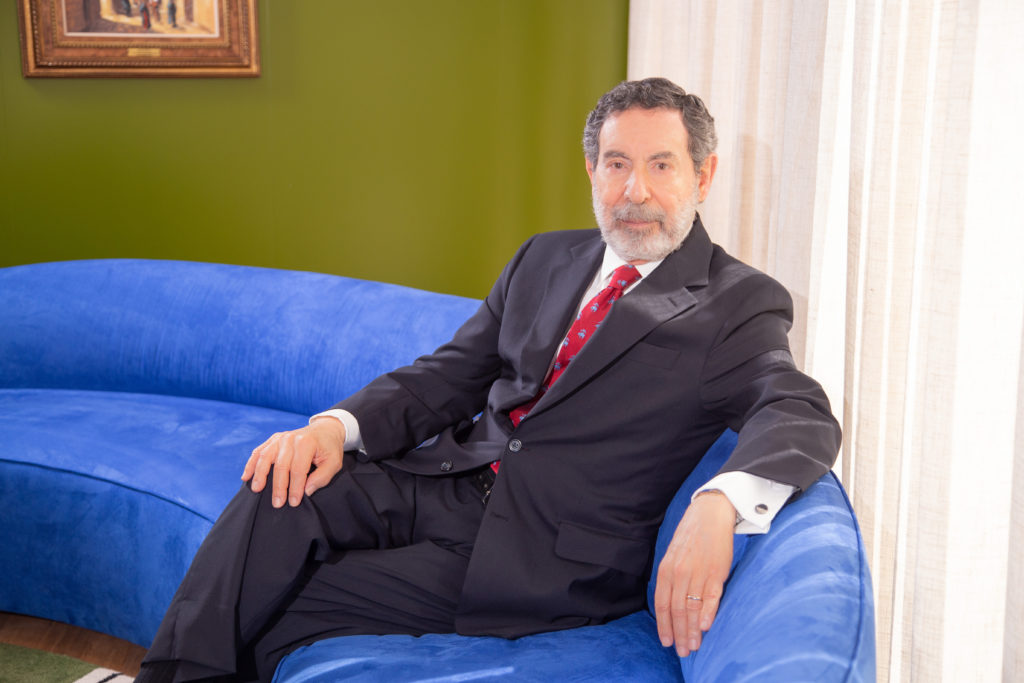São Paulo – A record-setting trade, more meetings between Brazilians and Arabs, a significant step towards the halal market, and the modernization of commercial transactions. These were the landmarks of 2022, the year when the Arab Brazilian Chamber of Commerce (ABCC) turned 70, according to its president, diplomat Osmar Chohfi. Just a few days before the end of the year, Chohfi took stook of the achievements over the period and said he expects even more from Brazil-Arab relations in 2023.
Chohfi stresses that many challenges were overcome and numerous activities were held during 2022, but he makes sure to highlight the most significant facts that guided the majority of the entity’s actions: the relevant trade figures, the Economic Forum Brazil & Arab Countries that were attended by some 1,000 people, the launch of Halal do Brasil project in partnership with the Brazilian Trade and Investment Promotion Agency (ApexBrasil), and the expanded operations of Ellos Platform, which digitizes Brazil-Arab commercial transactions.
Record-breaking trade
Despite the challenges faced by international trade this year, with some consequences from the COVID-19 pandemic still present and the Russia-Ukraine war going on, Brazil-Arab trade grew by 38% year to date through November, reaching USD 30.1 billion. “Brazil-Arab bilateral trade had an extraordinary performance,” Chohfi said, pointing out that USD 30 billion is a historic landmark and a record for the trade between the two regions.
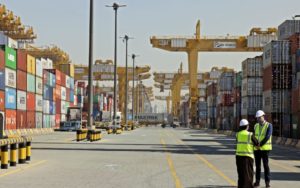
The ABCC’s president sees the figures as a sign of the complementariness between Brazil and the Arab world. “First off Brazil is key for the food security of the Arab countries,” Chohfi said, stressing that agribusiness products, including foodstuffs, were a highlight, particularly wheat. The global wheat supply was hampered by the Russia-Ukraine war, as the region supplies the product, and Brazil filled this gap, stepping up wheat sales to Arab states.
Among Arab exports to Brazil, a highlight were fertilizers, which are key for keeping Brazilian agribusiness up and running. “In the context of the difficulties created by the Ukrainian war in the global fertilizer market, Brazil was able to buy larger amounts from the Arab countries, which is a result from government’s actions that were greatly influenced by the ABCC,” Chohfi said. When the fertilizer problem came up, the ABCC carried out a series of activities with the Brazilian government that resulted in a mission of Brazil’s Ministry of Agriculture, Livestock and Supply to Morocco, Jordan and Egypt to evaluate the possibility of imports.
Chohfi believes that the growth in trade between Brazil and the Arab world in 2022 also resulted from the economic recovery of the two regions following the COVID-19 pandemic and a good environment in relations as the Arab countries see Brazil as a reliable partner, with a high-quality, dependable supply. “This reinforces trade,” the ABCC’s president says.
Economic Forum Brazil & Arab Countries
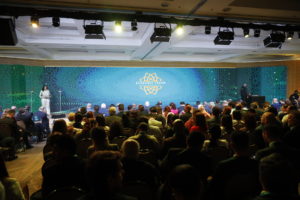
Another landmark of the year of 2022 in Brazil-Arab relations was the Economic Forum Brazil & Arab Countries, which took place in person for the first time after two years of pandemic, gathering officials, businesspeople and experts from both regions in July in São Paulo. The hybrid event got some 1,000 attendees and viewers, marking the 70th anniversary of the ABCC. “The forum creates an environment for bilateral dialogue, not only in trade but also politics, including the conceptual rapprochement of positions, studying new cooperation opportunities in economics and other areas as well,” Chohfi said.
Topics ranged from sustainability to governance and tourism and all other subjects that permeate Brazil-Arab relations. “The forum is held every two years and casts its influence on what we do over the two subsequent years,” he says. Memorandums of understanding were signed with halal and sports entities as well as binational Arab chambers of commerce, particularly from South America and Europe. “The forum makes it possible for us to strengthen these institutional ties,” Chohfi says.
Halal do Brasil
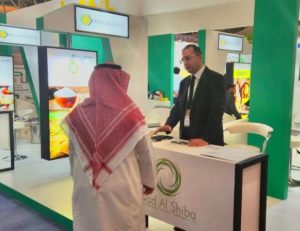
The year of 2022 also saw the kickstart of a project that promises to further the Brazilian presence in the halal market, whose products are fit for Muslim consumption. The ABCC signed an agreement with ApexBrasil to carry out the Halal do Brasil project aimed at taking Brazilian high value-added food companies to access the Islamic market. “Halal do Brasil is a three-year project aimed at training Brazilian companies in a joint program with ApexBrasil and funded by ApexBrasil. We’ll target 500 Brazilian companies to help them access not only Arab but other Islamic-majority countries, too,” Chohfi explains.
A memorandum of understanding on the matter that served as a un umbrella with the key points of collaboration was signed during the Economic Forum Brazil & Arab Countries in the middle of 2022. Later in the year ApexBrasil and the ABCC signed the proper agreement in Brasília, and they’ve already started the first action of the project – the participation of Brazilian firms in the Saudi Halal Expo in Saudi Arabia. The presence of Brazil, which is a traditional supplier of halal protein, caught the attention at the exhibition. The Halal do Brasil project will be one of the main focus areas of the ABCC in 2023.
Technological modernization in trade

In 2022, the ABCC expanded the operations of the Easy Trade system, which allows electronic customs clearance. This represented a major success in the institution’s desire to modernize, debureaucratize and digitize trade with Arab countries. Jordan is already using the system, and Egypt announced it will do it, too. The Easy Trade system is part of the Ellos Platform, which uses blockchain and will take the foreign trade process to the digital world, from negotiation to funding.
“It’s the most important modernization process of the ABCC, as it allows the institution to play a major role in bilateral relations with different Arab countries through an extremely modern, streamlining instrument. We are making everything in logistics procedures virtual,” Chohfi said. According to him, the initiative involves not only the ABCC but also the Brazilian government through its agencies and ministries, Arab governments, and companies.
And more
In addition to these major projects, the ABCC was also engaged in a multitude of activities, such as the world exhibition Expo 2020 Dubai in the United Arab Emirates and the Sharm el-Sheikh Climate Change Conference (COP 27) in Egypt; signing of the agreement with Arab-South American chambers of commerce for expertise interchange; support for and partnership with Brazilian embassies in Arab countries and Arab embassies in Brazil; and the organization of the Brazilian and Arab presence in trade shows, including of Arab companies in supermarket fair APAS Show.
The cultural and social fields also saw great achievements, Chohfi said. The ABCC was a partner of the Arab World Film Festival and the launch of the Arab Latins project by the United Nations Educational, Scientific and Cultural Organization (UNESCO), provided an art piece in tribute to the Arab immigration in São Paulo, presented the Digitization Project of the Memory of Arab Immigration in Brazil with the first part of the collection, and participated in an action in the Museum of Football due to the World Cup in Qatar.
What to expect from 2023?
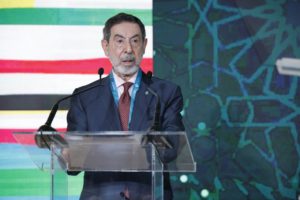
The ABCC’s president expects Brazil-Arab relations to grow in 2023. “The government elected in Brazil is a government that showed in previous administrations a great interest in the political, economic and cultural rapprochement with the Arab world. We can’t forget that the Summit of South American-Arab Countries (better known by its Portuguese and Spanish acronym ASPA) was created during the administration of president Luiz Inácio Lula da Silva. We have every reason to believe the emphasis of the new foreign policy will be furthering the rapprochement with the Arab countries, and everything indicates this will happen, as the conditions are given to work in fertile ground,” Chohfi said.
The ABCC’s president points out that the large projects carried out during 2022 mentioned above will continue in 2023. “They’ll be designed and partly implemented in 2023 as they’re ongoing projects, they do not end in itself in 2022. They’re strategic, fundamental projects,” Chohfi said. The goal is taking Easy Trade, for example, to more Arab countries. There are plans for negotiating with the UAE, Morocco, Saudi Arabia, and others. “We want to include more Arab countries in our blockchain system,” he says.
The diplomat that is the head of the ABCC knows that 2023 will have its challenges. “I see an international stage of many uncertainties both in politics and economy and trade,” he says, mentioning the political and economic impacts of the Russia-Ukraine conflict, climate change, energy market, and the performance of the Chinese economy.
But Chohfi has one certainty: Brazil and the Arab countries will remain as great partners. “Even in contexts of uncertainties, Brazil-Arab trade has a certain stability, we saw that it’s stable. It was stable during the pandemic, and it’s stable now. I believe that, unless there’s some extremely serious fact, whether in the political-strategic sphere or economic-trade sphere, Brazil-Arab trade will remain stable, and I expect it to grow,” he completes.
Translated by Guilherme Miranda



